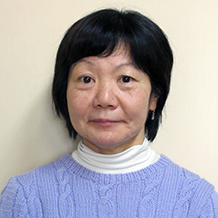
Yoko Hayami
Abe Fellowship 2015
Project Title
Dynamics of the Social Foundations of Care in the Era of Global Aging: Comparative Study between Industrializing Thailand and Post-Industrrial Japan Institutional Affiliation (at time of award)
Professor, Center for Southeast Asian Studies, Kyoto University 